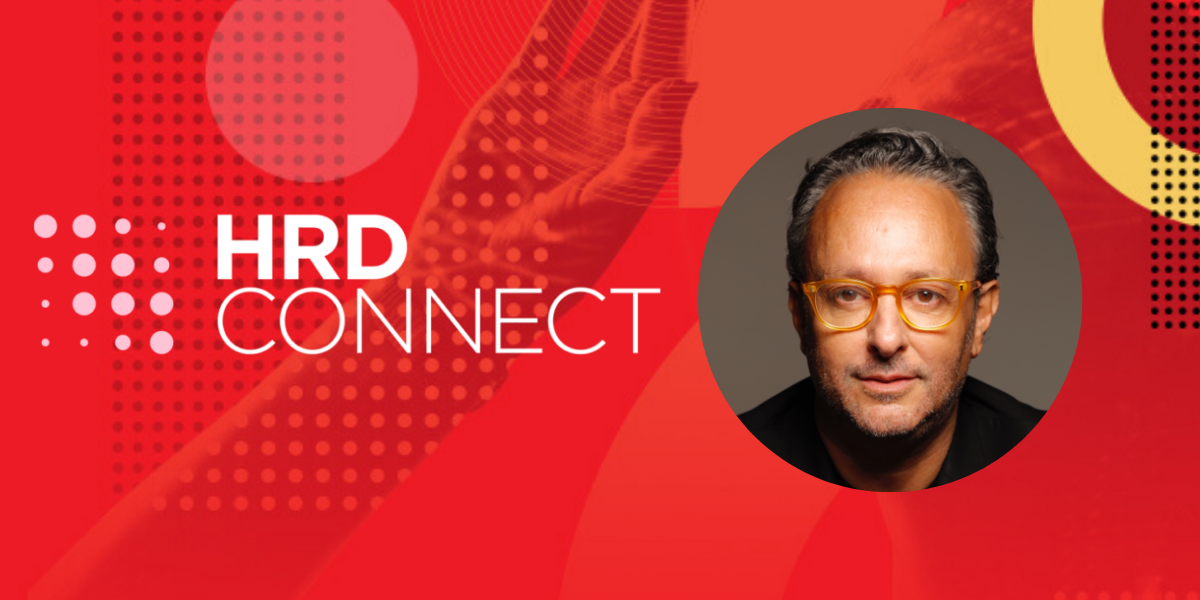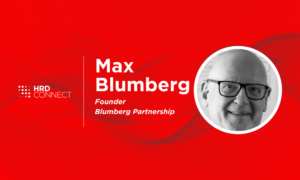Terence Mauri on why reimagination is the new execution
- 7 Min Read
HRD Thought Leader Terence Mauri outlines why leaders must embrace the concept of reimagination to ensure organisational and team success
- Author: Terence Mauri
- Date published: Sep 22, 2021
- Categories

Are you leading in a perpetual state of beta? The last 19 months have shown that the status quo is fragile, unstable and decaying at a faster rate, with $41 trillion of enterprise value at risk from the forces of business, technology and workforce disruption. Now, the only certainty is uncertainty.
Leaders must master ambiguous and demanding contexts by focusing not only on business continuity but on reimagining relevancy across their strategy, culture, talent, operating model and leadership. Hack Future Lab founder, HRD advisory board member and global management thinker Terence Mauri sets out why reimagination is the new execution for a world that is more turbulent and less predictable than ever before.
The age of liminality
The month of September always feels like a back-to-school transitional state, even for adults. What better way to turn this moment of liminality into a catalyst for learning, growth and reflection? The word disruption has been mentioned over 1,800 times in quarterly earnings calls in the last three months. Like most terms in the business lexicon, they become buzzwords and ultimately lose their meaning.
Disruption means both change and opportunity. I want to reject this false constraint that disruption is something that just happens to leaders and their organisations. The history of humanity is a history of disruption. Stone Age, Bronze Age, Iron Age and now the Age of AI, automation and analytics. Did you know that most of today’s famous hectocorns ($100bn equity market valuations) were born from a crisis (e.g. Square, Inc. Airbnb and Uber were all launched during the global financial crisis of 2008-2009)?
Yes, it’s true disruption is accelerating and business models are going off like yoghurt in the fridge. However, I still believe that disruption can be embraced as a tailwind for reinvention and growth.
- 100,000 years ago, we harnessed fire, which led to language.
- 10,000 years ago, we developed agriculture and commerce, which led to the marketplace.
- 5,000 years ago, we invented writing and the wheel, which led to travel and cities.
- Today, AI, big data, deep learning and analytics are upending entire industries, adding over $2 trillion to equity market capitalisations in the last two years.
Gradually, then suddenly
The last 18 months have been an accelerant for change (remote work, automation, e-commerce and business model evolution) and what the Austrian economist Joseph Schumpeter called the ‘gales of creative destruction’.
Change always presents leaders with the choice of either: re-imagination and renewal if change is harnessed as a tailwind, or relapse and regression if change is perceived as a headwind. Disruption and its close cousin, change, has given leaders a once in a lifetime opportunity to practise what I call ‘first principles leadership‘.
First principles leadership is at the heart of reimagination as the new execution, and it means not just thinking and learning, but re-thinking and un-learning in order to break out of those outdated mindsets, operating models and leadership blind spots that exist. Leaders should ask themselves:
- Which parts of our leadership style are emerging, eroding and enduring?
- Do our existing leadership and operating principles still hold true in a hybrid, post-pandemic world?
- Are we choosing a perpetual state of beta or simply protecting an outdated legacy?
- What is our ratio of assumptions-to-knowledge and are we updating our assumptions based on the accelerating rate of change?
- How do we ensure talent sustainability, well-being and inclusivity?
- What is our top team’s leadership narrative? Is it one voice and does it help everyone connect with the wider purpose?
- If we were starting as leaders again today what mindsets, values and leadership principles would we hold true and which ones would we eliminate?
Today is the slowest it’s ever been in our lifetimes. That’s either terrifying or galvanising, depending on mindset, personality type and tolerance for uncertainty. It’s now ‘business unusual‘. It’s no longer companies versus companies. It’s mindsets versus mindsets and cultures versus cultures.
What this means is that leaders must master the new logic of competition and unlock new ways of thinking, learning and un-learning. To master the new logic of competition, you’re now competing on:
- Rate of learning, where the ratio of assumptions-to-knowledge is decaying three times faster than 10 years ago.
- Costa Rica like eco-systems, with a combined revenue potential of over 70 trillion dollars in the next years.
- Trust as North Star shifting from a world of local, to institutional, and now distributed trust with technology as the key enabler.
- Automation, augmentation and digitisation, where according to Microsoft, I.T spending will jump from five to 10% of GDP in the next five years, and the remaining 80% of companies will re-platform to the cloud.
- ROI – not just return on investment, but new human metrics for a new world. Return on intelligence, return on imagination (every company is an act of imagination), return on innovation and return on integrity (10 out of 15 companies have operated at the edge of ethics in the last five years with, for example, data privacy breaches, tainted foods and even loss of life).
New world DNA
Leaders who are harnessing reimagination as the new execution include: Moderna, reimagining pharma using mRNA- the software of life; Beyond Meat, reimagining food tech for a healthy and ecologically friendly future; and Klarna, the decacorn disrupting the $8 trillion card payment market. They have what I call new world DNA, which I define as:
- Money to meaning
- Bossed to unbossed
- Hierarchies to communities
- Ego to eco values
- Knowing to learning and un-learning
- Secrecy to radical transparency
- Job descriptions to talent and mastery
- Rules to freedom and autonomy
- From command and control to care and co-creation
- Bring your own laptop to BYOE (bring your own environment)
New world DNA leaders scale challenger cultures that are human-led, tech-enabled, intentionally diverse, purpose-led, operationally nimble and built for both speed and anti-fragility. They can absorb supply chain shocks, de-globalisation and bounce back and bounce forward from black swan events, such as the pandemic.
To unlock reimagination as the new execution, there are three catalytic questions to put to work in your organisation today. I believe questions are the answer in the new context and matter more than answers, when you’re operating at the edge of uncertainty and in a largely unknowable future.
What questions do you want to remembered for? What’s the bravest question you can ask today that won’t just make people feel good, but make people think hard?
Reimagination is the new execution checklist
- Energise the core: How have our business model, workforce and talent models, culture and leadership evolved and embraced the forces of disruption as a tailwind for renewal or reinvention in the last 18 months?
- Reimagine growth engines: What new growth engines, customer products/services and digital channels have we introduced, with revenue outside core being our key metric?
- Sustainability: Are we demonstrating the highest ethical standards, sustainable financial impact, and a commitment to diversity, equity and inclusivity (DEI)?
Reimagination is your north star
Without reimagination, leadership breaks down, organisations go bust earlier, people stop learning and cultures decay. In an age with record levels of social tension, economic nationalism and technological revolution, it’s time for leaders to put reimagination as the new execution at the forefront of their purpose, strategy and planning, and use it as their north star for navigating deep uncertainty and complex futures.
The Japanese word Henka (変化) means perpetual change, courage and transcendence and takes its inspiration from nature. It’s turning lead to gold or a moth to a butterfly. It’s the essence of reimagination. Will you watch the world change around you or be the one leading it with reimagination as your north star?






